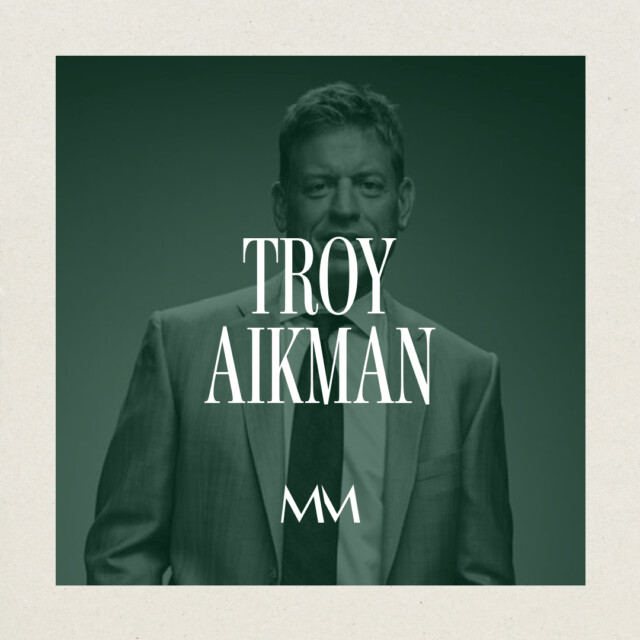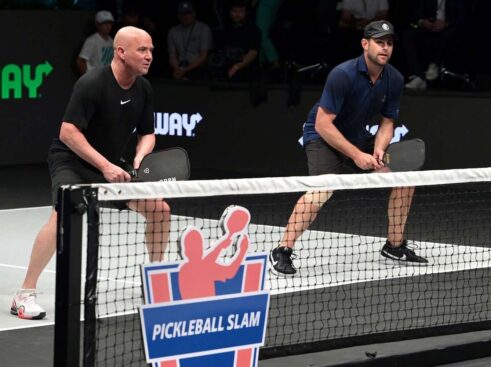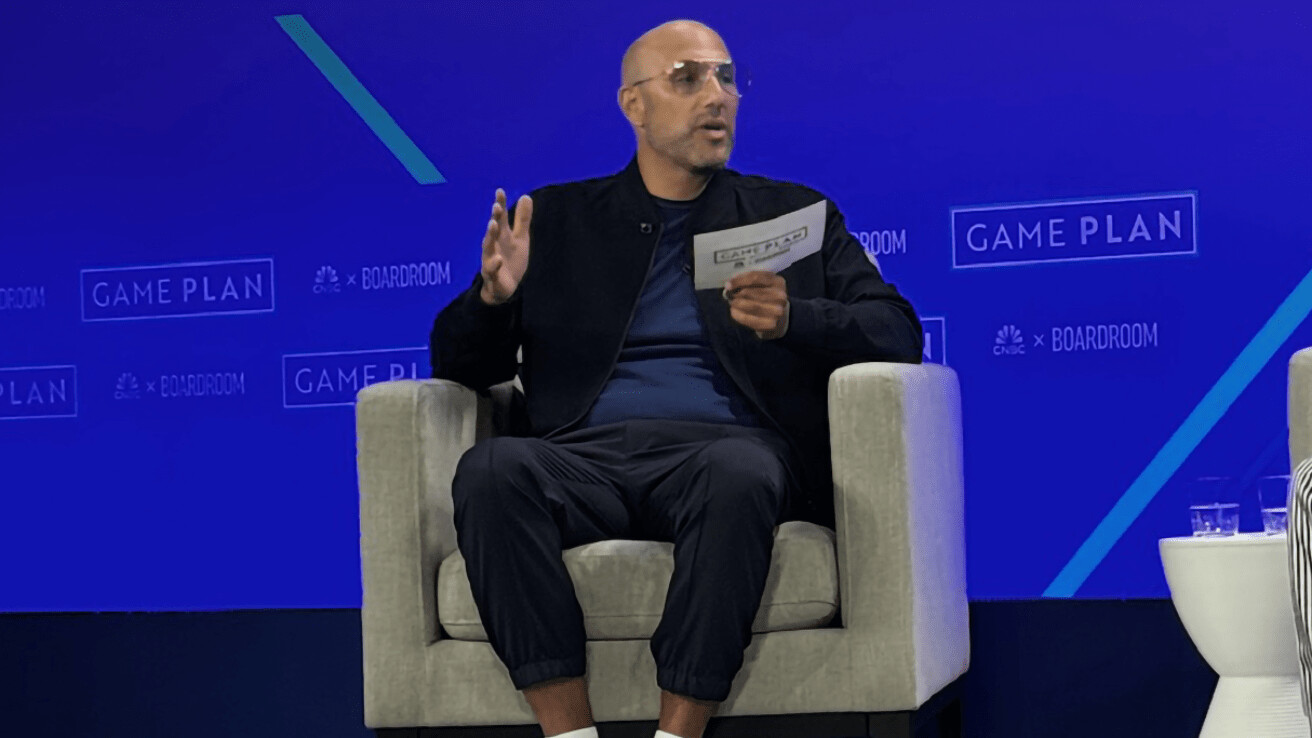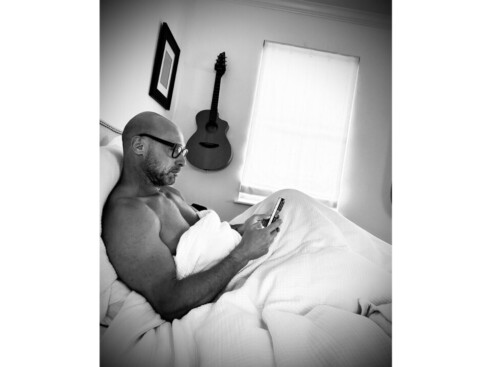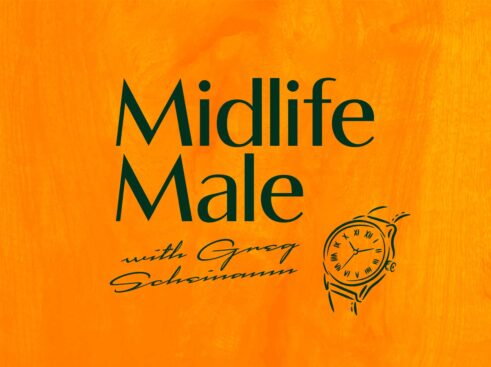Rich Kleiman is co-founder and CEO of Boardroom with Kevin Durant, a sports and entertainment company that includes the flagship media network, Boardroom.TV. Boardroom covers the business of sports and entertainment, with a special focus on the ways that athletes, executives, musicians, and creators are moving the business world forward.
Rich is married and the father of two girls. MLM founder Greg Scheinman happens to be an old camp buddy with Rich, and the two sat down to talk about business, networking, rabbis, finance, healthy living and what it means to maximize midlife.
Here is this week’s How I See It:
Greg Scheinman: What’s your philosophy behind the projects you get involved with through 35 Ventures?
Rich Kleiman: It’s all about authenticity. When Kevin and I started the company, my role was to manage him, and that’s still a big part of my job. Whether it’s a film, a business, or something like Boardroom, we always ensure it aligns with our passions and interests. We invest in things we love, things that make sense for us. That started with education in the VC world and has grown from there. We’ve built an ecosystem where we focus on projects we understand, whether we invest in them or build them from scratch. It’s a manageable, sustainable process for us.
Greg Scheinman: How do you balance managing someone else’s life with your own?
Rich Kleiman: I think my situation is unique. Kevin and I have a very fair relationship where I’m always going to support him, but he doesn’t always need to rely on me for everything. We’ve built trust, respect, and a great infrastructure that supports our work. I’ve been doing this for so long that the relationships with his family and the people who work with him are natural to me. It helps that Kevin is a grown man and doesn’t need constant management. We’ve built a system that makes it sustainable.
Greg Scheinman: What kind of father are you?
Rich Kleiman: I’d say I’m a good dad in the sense that I’m present, I love my kids unconditionally, and I’m honest with them. But I also think there’s always room for improvement in ways that don’t fit into standard boxes. My memories of my own childhood influence how I parent now. I want to create better experiences and memories for my kids, especially during these formative years from ages 8 to 18. I’m constantly thinking about how I can be better for them, and how I can make our time together meaningful.
Greg Scheinman: Can you disconnect from work and be fully present with your family?
Rich Kleiman: I’m getting better at it, but it’s a work in progress. When you’re entrepreneurial, it’s hard to put your phone down because you always feel like something could happen. But I’m trying to build confidence that things can wait until tomorrow. My goal now is to focus more on my kids and what they want to do, even if it’s something I don’t enjoy, like roller coasters. It’s about creating moments they’ll remember and making sure they feel supported and understood.
Greg Scheinman: Why are you talking to a rabbi?
Rich Kleiman: I’ve reached a point in my life where I’m seeking clarity and balance. I’ve become more self-aware and want to handle situations better, whether it’s personal or professional. Talking to the rabbi gives me a different perspective, challenges my ego, and helps me make more thoughtful decisions. It’s not about religion for me; it’s about having a sounding board to help me grow and become more grounded.
Greg Scheinman: What’s your approach to health and wellness?
Rich Kleiman: I’m still early in the process of understanding how important it is. I never tipped the scale into being unhealthy, but I wasn’t particularly healthy either. I quit smoking, slowed down on drinking, and I’ve always enjoyed playing sports like basketball and tennis. My back issues have limited some of that, but I’m working on being more mindful about my physical health, especially since the pandemic made me look inward and ask, “Why are we all so scared?” It’s been a wake-up call for me.
Greg Scheinman: What are your thoughts on health awareness in our generation compared to the past?
Rich Kleiman: In layman’s terms, you can’t afford to be unhealthy anymore. Our generation is so much more aware of what’s good and bad for us. We know better than to have meals that are going to hurt us. Today, founders talk about their meditation practices, their diets, and there are films that teach us what we can and can’t eat.
Our parents didn’t have that same awareness, but now it’s exploding. People stand out if they’re not taking care of themselves. The entrepreneurial crowd has also shifted. Our childhood might have been the first generation where young entrepreneurs really became visible, not just athletes or big-time businesspeople, but kids who became day traders or opened restaurants and clubs. The whole scene was buzzing, and those who saw it as more than just a quick opportunity ended up building long-term networks and businesses. Now, people like Noah Tepperberg, Jason Strauss, Dave Grutman, and others have built huge businesses with the same networks they formed in the early days.
Greg Scheinman: You’ve been described as a master networker, someone who connects dots easily. What’s your secret to building and maintaining such a strong network?
Rich Kleiman: I truly cherish relationships. I appreciate my friendships and the history I have with people. When I was younger, I sought out successful people, even if it was uncomfortable. I didn’t always know what I was doing, but I was never afraid to introduce myself. I kept in touch with everyone I met, no matter their background—whether they lived in a studio apartment or a penthouse. I was unafraid to walk up to people like Leor Cohen, Damon Dash, Jay Z, or Brian Grazer. Over time, people started believing in me. I didn’t approach these relationships by asking for things; I just wanted to meet people and talk. Keeping in touch takes work, and a lot of people don’t have that skill, but it’s crucial. Whether it’s a quick message or a compliment on a photo, I make an effort to maintain relationships.
Greg Scheinman: What is your relationship with money, and how has it evolved over time?
Rich Kleiman: I grew up in a time when there was a real middle class, so I experienced both sides of the tracks. My parents gave me what I needed, but when I was about 18, it was over. I had to fend for myself financially, and I became an earner. When I was younger, I didn’t have a foundation. I’d get a big check, spend it, gamble, pay off my credit card, and repeat the cycle. But at some point in my 30s, I stopped living recklessly and started making okay money. I invested in myself, and while it was risky, it eventually paid off. I had moments of waking up with a pit in my stomach, owing money, but I always figured it out.
By my mid-30s, I realized I needed to work hard and stop living beyond my means. I talked to my wife, and we made a plan. I knew I had to bust my ass to make the money we needed. I couldn’t rely on shortcuts anymore. Now, I’m more focused on my family, savings, and the bigger picture. It’s been a process, and I appreciate people who get it earlier in life, but for me, it took time to learn.
Greg Scheinman: You’re now speaking at colleges and events, sharing your experiences. What do you talk to students about, especially when your path has been so different from the typical one?
Rich Kleiman: I talk about my real-life experiences—grinding, making it happen, believing in yourself. I want to show them that there isn’t just one way to succeed. Some of these students are on a more traditional path: go to school, get a job, work your way up. But others, like me, might take a more unconventional route. When I walked away from Roc Nation, a lot of people thought I was crazy. That was a dream job, but I knew I had to do my own thing, and I left with the support of the people there. That’s another skill—knowing how to leave without burning bridges.
When I speak to students, I emphasize the importance of relationships, resilience, and confidence. I didn’t have it all figured out at 18, 25, or even 30, but I kept pushing forward. I love giving back, and if my story can inspire someone, I’m all for it.
